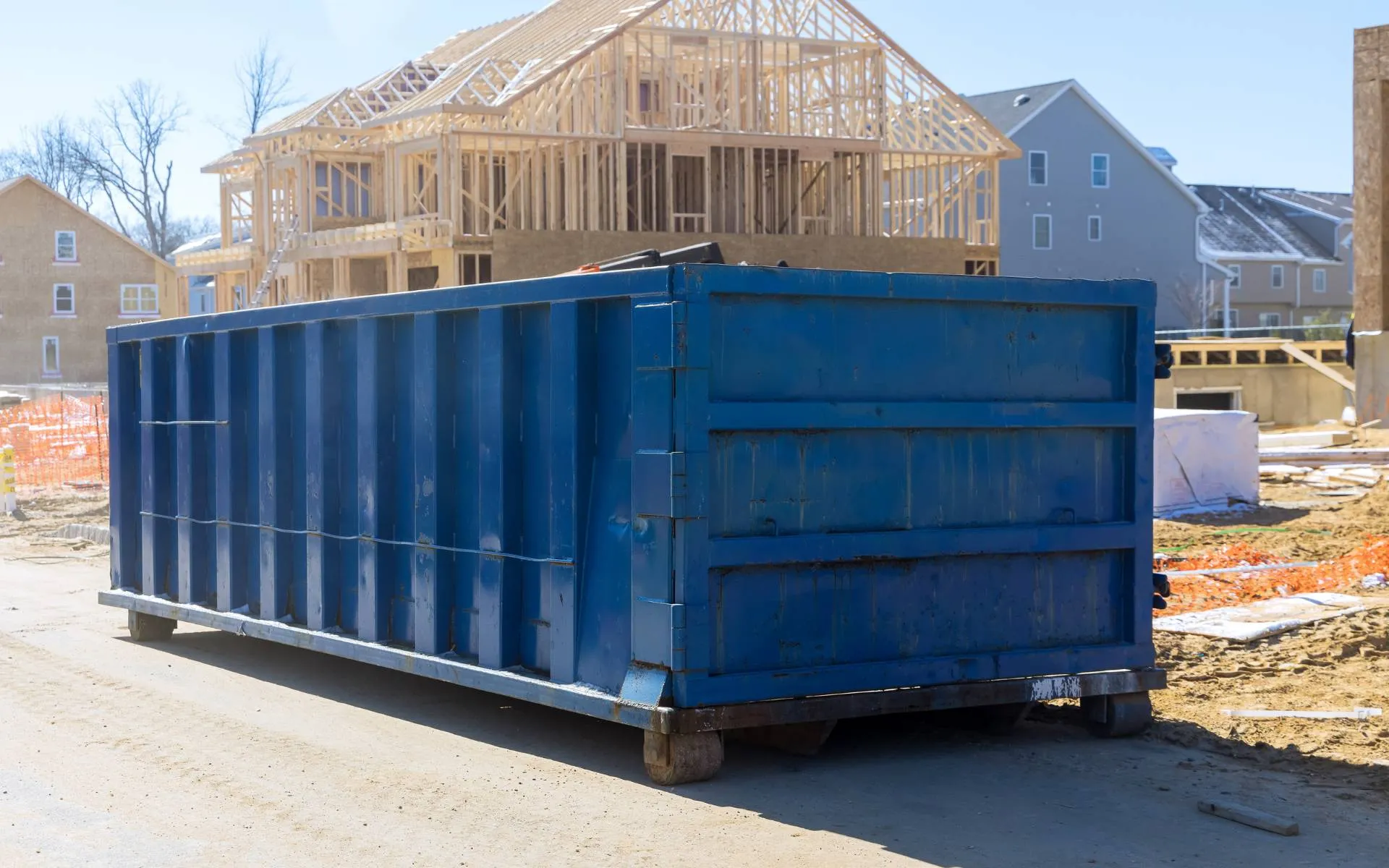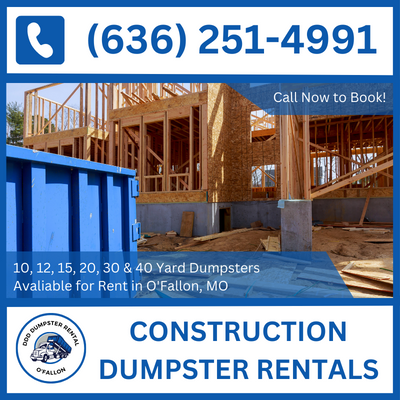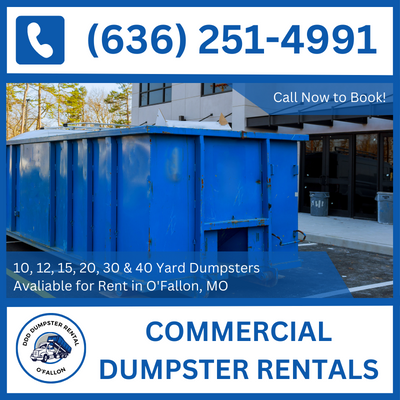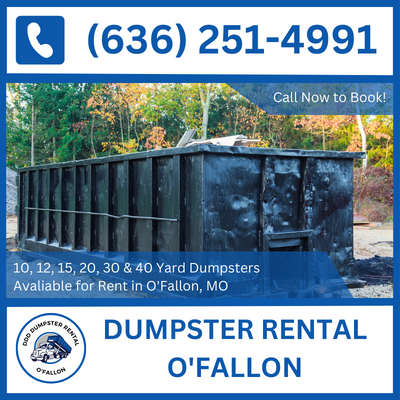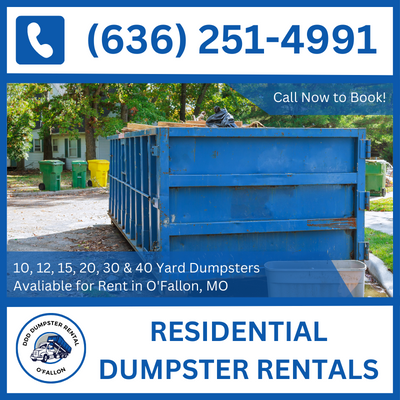The Demolition Dilemma: When to Rent a Dumpster for Your Project
Demolition projects, whether small or large, require careful planning and execution to ensure safety, efficiency, and cost-effectiveness. One crucial aspect of any demolition project is waste management, which is where dumpster rentals come into play. Renting a dumpster provides a convenient and practical solution for disposing of debris and waste generated during the demolition process. However, many people face a common question: Should I get a dumpster before I start demolition or after?
To answer this question, it's essential to consider the following factors:
- The scope and scale of the demolition project
- The amount and type of waste expected
- The available space for the dumpster on-site
- The timeline and budget for the project
By carefully evaluating these factors and understanding the benefits of renting a dumpster before demolition, you can make an informed decision that will streamline your project and minimize potential issues.
|
Factor |
Before Demolition |
After Demolition |
| Waste management | ✓ | |
| Safety | ✓ | |
| Efficiency | ✓ | |
| Cost-effectiveness | ✓ |
In the following sections, we will delve deeper into the considerations, benefits, and risks associated with renting a dumpster before or after demolition, helping you make the best choice for your project.
Considerations Before Starting Demolition
Alright, let's dive into the nitty-gritty of what you need to think about before you start swinging that sledgehammer! Demolition projects can be a blast (pun intended), but trust me, you don't want to jump in without a game plan.
First things first, you gotta wrap your head around the scope of the project. Are you knocking down a single wall or gutting an entire building? The size of your demolition will determine a lot of your next steps, like how much waste you'll generate and what kind of permits you'll need.
Speaking of permits, don't even think about starting your demolition without checking with your local authorities. Depending on where you live, you might need to get a demolition permit, a building permit, or both! And let's not forget about inspections. You might need to have your site inspected for safety hazards or environmental concerns before you can start tearing things down.
Now, let's talk about the icky stuff: hazardous materials. If your building was built before the mid-1980s, there's a chance it could contain asbestos or lead paint. Trust me, you don't want to mess around with that stuff! If you suspect your demolition site might have hazardous materials, you'll need to bring in the pros for an inspection and proper removal.
|
Hazardous Material |
What is it? |
Why is it dangerous? |
| Asbestos | A naturally occurring fibrous mineral | Can cause lung cancer and other respiratory issues |
| Lead Paint | Paint containing lead, commonly used before 1978 | Can cause brain damage, especially in children |
Another thing to keep in mind is utilities. Before you start demolition, you'll need to make sure all your utilities are properly disconnected. This includes:
- Electricity
- Gas
- Water
- Sewer
The last thing you want is to accidentally knock out a gas line and cause an explosion!
Finally, don't forget about salvage and recycling. Just because you're demolishing something doesn't mean it all has to end up in a landfill. Take some time to identify materials that can be salvaged, like doors, windows, or architectural features. And for everything else, see if it can be recycled. Many dumpster rental companies offer recycling services, so be sure to ask about that when you're shopping around.
Phew! I know that was a lot to cover, but trust me, taking the time to plan ahead will make your demolition project a whole lot smoother (and safer). Stay tuned for more tips on renting a dumpster and making your demolition dreams a reality!
Benefits of Renting a Dumpster Before Demolition
Now that we've covered all the important considerations before starting your demolition project, let's talk about why renting a dumpster beforehand is a total game-changer. Trust me, once you hear these benefits, you'll be rushing to reserve your dumpster faster than you can say "demo day!"
Convenience and Efficiency
Picture this: you're knee-deep in demolition debris, and suddenly you realize you have nowhere to put it all. Nightmare scenario, right? Well, when you rent a dumpster before demolition, you'll have a ready bin on-site from the get-go. No more scrambling to figure out what to do with all that waste!
Plus, having a dumpster right there means you can toss debris as you go, making for a much more efficient workflow. No more stopping every five minutes to bag up waste or haul it off-site. With a dumpster, it's as easy as toss, slam, and bam – back to demolition!
Safety
Demolition can be a dangerous business, but renting a dumpster can help keep your work environment safer. When you have a designated spot to toss debris, you minimize the risk of tripping hazards and other safety concerns on the job site.
Think about it: would you rather navigate a minefield of scattered debris or have a neat and tidy work area? I know which one I'd choose!
|
Scenario |
Without a Dumpster |
With a Dumpster |
| Debris management | Scattered, hazardous | Contained, organized |
| Work environment | Cluttered, unsafe | Clean, safe |
| Demolition efficiency | Slow, interrupted | Fast, uninterrupted |
Cost Savings
Now, I know what you might be thinking: "Renting a dumpster sounds expensive!" But hear me out – renting a dumpster before demolition can actually save you money in the long run.
How, you ask? Well, for starters, having a dumpster on-site means you can avoid delays and keep your project moving forward. Time is money, after all! Plus, when you have a dumpster, you can control waste generation and avoid those pesky overage fees from your local landfill.
And let's not forget about the cost of cleanup. Without a dumpster, you'll spend hours (or even days) bagging up debris and hauling it away. That's time you could be spending on other projects or, you know, actually enjoying your life.
Environmental Protection
Last but not least, renting a dumpster is just plain good for the environment. When you have a designated spot for waste, you're less likely to let debris fly all over the place and end up in places it shouldn't be.
Plus, many dumpster rental companies offer recycling services, so you can feel good about properly disposing of debris and minimizing your environmental impact. It's a win-win!
So there you have it, folks – the benefits of renting a dumpster before demolition. Trust me, it's the way to go if you want a safer, more efficient, and more cost-effective demolition project. Stay tuned for more tips on choosing the right dumpster and making your demolition dreams a reality!
Factors to Consider When Renting a Dumpster
Alright, so you're sold on the idea of renting a dumpster for your demolition project. Great choice! But before you go ahead and book the first dumpster you see, there are a few important factors to consider. Don't worry, though – I'm here to break it down for you!
Dumpster Size and Capacity
First up, let's talk about dumpster size. Dumpsters come in all shapes and sizes, from cute little 10-yarders to massive 40-yard behemoths. The size you need will depend on the scope of your project and the amount of waste you expect to generate.
Here's a quick breakdown of common dumpster sizes and their capacities:
|
Dumpster Size |
Capacity (cubic yards) |
Ideal For |
| 10 yards | 10 | Small renovations, garage cleanouts |
| 20 yards | 20 | Medium-sized projects, home remodels |
| 30 yards | 30 | Large renovations, construction projects |
| 40 yards | 40 | Major construction, commercial demolition |
Keep in mind that it's always better to overestimate your needs than to underestimate and end up with an overflowing dumpster (and a hefty overage fee)!
Rental Duration
Next, consider how long you'll need the dumpster for. Most dumpster rental companies offer flexible rental periods, ranging from a few days to a few weeks. Think about your project timeline and how long you realistically expect the demolition to take.
Keep in mind that the longer you keep the dumpster, the more it will cost. But rushing to finish your project just to avoid an extra day or two of rental fees could lead to sloppy work and potential safety hazards. It's all about finding that sweet spot!
Placement and Accessibility
Before you rent a dumpster, think about where you're going to put it. You'll need a flat, stable surface that's easily accessible for both your crew and the dumpster delivery truck. If you're working in a tight space or have limited access to your property, you may need to get creative with dumpster placement.
Some things to consider:
- Is there enough clearance for the dumpster delivery truck?
- Will the dumpster block any sidewalks, driveways, or roads?
- Is the surface level and stable enough to support the weight of a full dumpster?
- Are there any overhead obstacles (like power lines or tree branches) that could get in the way?
Type of Debris and Waste
Finally, think about the type of debris and waste you'll be generating during your demolition project. Some materials, like hazardous waste or electronic devices, may require special disposal methods and can't go in a regular dumpster.
If you're unsure about what can and can't go in your dumpster, just ask! Your dumpster rental company should be able to provide you with a list of acceptable materials and any restrictions or guidelines you need to follow.
And there you have it – the key factors to consider when renting a dumpster for your demolition project. Keep these things in mind, and you'll be well on your way to a successful (and stress-free) demolition experience!
Risks of Waiting to Rent a Dumpster Until After Demolition
Alright, folks, let's talk about procrastination. We've all been there – putting off that trip to the dentist, waiting until the last minute to file your taxes, or in this case, holding off on renting a dumpster until after you've started your demolition project. But trust me, waiting to rent a dumpster is like playing with fire (or in this case, a whole lot of debris).
Accumulation of Debris and Clutter
Picture this: you're knee-deep in demolition, and suddenly you realize you have nowhere to put all the waste you've generated. Before you know it, your once-tidy work site has turned into a cluttered mess of debris and junk. Not only is this unsightly, but it can also seriously hinder your progress and productivity.
When you wait to rent a dumpster until after demolition has started, you risk letting the waste pile up and take over your workspace. And let's be real – nobody wants to navigate a maze of debris just to get from point A to point B.
Potential Safety Hazards
Clutter and debris aren't just annoying – they can also be downright dangerous. A messy work site is a breeding ground for potential safety hazards like trip hazards, sharp edges, and unstable piles of waste.
Imagine trying to maneuver around a minefield of debris while wielding heavy tools and equipment. It's a recipe for disaster! By waiting to rent a dumpster, you're putting yourself and your crew at risk of serious injury.
Increased Costs for Disposal and Cleanup
Let's talk money. When you wait to rent a dumpster until after demolition has started, you're essentially signing yourself up for some serious sticker shock. The longer you let debris accumulate, the more waste you'll have to dispose of – and the more it will cost you in the long run.
Plus, when you finally do rent a dumpster (because let's face it, you can't just leave that mess there forever), you'll likely need a larger size to accommodate all the extra waste. And as we discussed earlier, larger dumpsters = higher rental fees.
|
Scenario |
Rent Before Demolition |
Rent After Demolition |
| Debris accumulation | Minimized | Excessive |
| Safety hazards | Reduced | Increased |
| Disposal and cleanup costs | Lower | Higher |
Delays in Project Timeline
Last but not least, waiting to rent a dumpster can seriously derail your project timeline. When you're constantly stopping to clear out debris and waste, you're taking valuable time away from the actual demolition work.
And if your work site becomes too cluttered and hazardous, you may even need to halt progress altogether until you can get the mess under control. Talk about a major project setback!
So, my friends, don't fall into the trap of waiting to rent a dumpster until it's too late. Trust me, your future self (and your wallet) will thank you for planning ahead.
In conclusion, the decision to rent a dumpster before or after demolition hinges on several factors, including project scope, debris volume, salvaging opportunities, and cost considerations. Proper planning is crucial, encompassing demolition permits, hazardous material inspections, and utility disconnections. Partner with a reliable rental dumpster company like DDD Dumpster Rental O'Fallon that offers:
- Variety of dumpster sizes
- Timely delivery and pickup
- Competitive pricing
|
Factor |
Before Demolition |
After Demolition |
| Convenience | Ready bin on-site | Gauge actual debris |
| Safety | Organized work environment | - |
| Cost | Potential long-run savings | Avoid oversized dumpster |
With careful consideration, you can ensure a smooth demolition process while prioritizing safety, efficiency, and environmental protection
